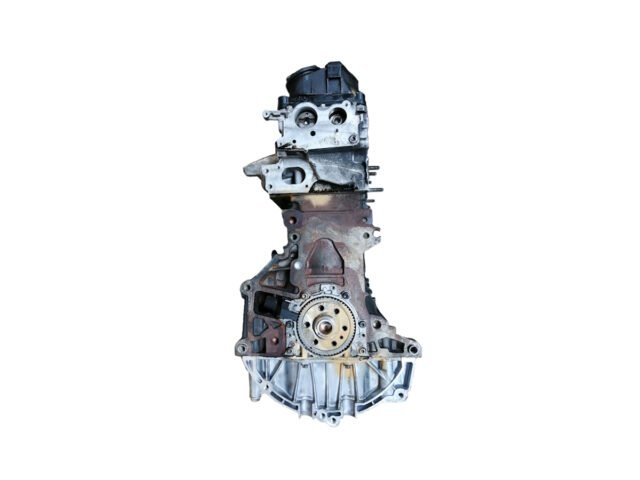Navigating the Refine of Engine Choice: Trick Factors to Take Into Account
The process of engine choice is a multifaceted undertaking that demands careful evaluation of numerous critical elements to make sure alignment with operational objectives. Performance requirements, fuel effectiveness, and monetary restrictions are simply the beginning; considerations around environmental impact and upkeep support play a critical role in the decision-making framework.
Efficiency Requirements
When selecting an engine, it is critical to establish clear efficiency requirements that line up with the designated application. Efficiency demands include a variety of aspects, consisting of power output, torque characteristics, and responsiveness, which need to be customized to the certain needs of the vehicle or machinery in inquiry.
Power result, normally gauged in horse power, identifies the engine's capacity to thrust a vehicle or perform a job successfully. Torque, on the various other hand, is crucial for applications calling for strong initial velocity or heavy training capacities. An understanding of the functional environment is also crucial; for example, engines designed for off-road applications might call for various efficiency characteristics contrasted to those intended for highway use.
In addition, think about the functional tons and duty cycle, as these variables affect the engine's longevity and integrity. In high-load scenarios, a durable engine design may be necessary to stop premature wear or failure. In addition, efficiency needs must also incorporate considerations for exhaust requirements and regulative compliance, particularly in regions with strict ecological policies. By specifying these performance specifications early in the choice procedure, stakeholders can make educated choices that improve total functional effectiveness and efficiency.
Fuel Effectiveness Factors To Consider
While performance demands are crucial, fuel efficiency is just as important in the engine option process, as it straight impacts operating expense and environmental sustainability. Fuel-efficient engines take in much less fuel each of work carried out, which not just decreases general expense yet also decreases greenhouse gas emissions. As organizations significantly prioritize sustainability, picking an engine that maximizes gas performance can improve company duty and compliance with ecological policies.
When reviewing fuel effectiveness, it is vital to consider the engine's layout and technology - amarok engine for sale. Advancements such as turbocharging, straight fuel injection, and hybrid systems can dramatically improve gas economy. Furthermore, understanding the operating conditions and task cycles of the engine application is vital; engines might carry out in a different way under differing speeds and tons
Furthermore, makers often provide fuel usage information that can be utilized to compare various engine choices. In summary, fuel effectiveness is a multi-faceted factor to consider that needs extensive analysis during the engine choice process.
Budget Plan and Price Analysis
Spending plan and expense evaluation offers as a crucial component in the engine option procedure, affecting both temporary financial investments and lasting functional costs. When examining potential engines, it is vital to consider not just the preliminary acquisition cost but also the total cost of ownership, which encompasses setup, maintenance, gas usage, and prospective downtime.
A detailed evaluation should begin with the ahead of time expenses linked with the engine, including needed adjustments or supplementary devices. Concentrating entirely on first expenditures might lead to illinformed decisions. Evaluating operating expenses over the engine's life-span is equally important, as much more expensive engines could offer superior fuel performance or minimized upkeep requirements, inevitably leading to cost savings.

Environmental Impact Factors
Understanding environmental effect aspects is necessary in the engine selection process, as sustainability factors to consider have come to be increasingly essential for both regulatory compliance and corporate duty. Organizations has to review the discharges produced by various engine kinds, including co2, nitrogen oxides, particulate issue, and unburned hydrocarbons. These emissions contribute substantially to air contamination and climate change, necessitating a cautious analysis of the engine's eco-friendly impact.
Furthermore, gas type plays a vital role in environmental effect. Engines powered by eco-friendly Website power resources, such as biofuels or hydrogen, have a tendency to have a lower environmental influence compared to typical fossil gas. Furthermore, the lifecycle evaluation of the engine, from manufacturing with procedure to disposal, should be considered to comprehend the complete extent of its environmental implications.

Maintenance and Support Choices
When picking an engine, the availability of maintenance and assistance choices is a critical consideration that can considerably impact functional effectiveness and longevity. Comprehensive upkeep intends ensure that the engine operates at peak efficiency and lessens unanticipated downtimes. It is important to examine the producer's assistance network, including the accessibility of certified specialists and service facilities.
Assessing the ease of access of extra parts is additionally essential. A reputable supply chain for elements can decrease lead times for repair services and maintenance, therefore boosting general productivity. Furthermore, consider the simplicity of getting technological paperwork and training sources, which are important for ensuring that personnel are fully equipped to manage regular and emergency situations.
An additional vital variable is the warranty and service contracts used by the maker. Eventually, an aggressive method to upkeep and assistance not just extends the life of the engine but also adds to the general success of the operation.
Verdict
To conclude, the procedure of engine selection necessitates a comprehensive evaluation of numerous essential variables, consisting of efficiency needs, fuel performance, spending plan restrictions, environmental effect, and maintenance assistance. By carefully evaluating these components, notified choices can be made that line up with functional goals and sustainability goals. Inevitably, a critical method to engine selection will certainly guarantee optimal efficiency and long life while resolving economic and environmental factors to consider effectively.
While efficiency needs are critical, gas efficiency is similarly vital in the engine choice procedure, as it directly affects operating costs and environmental sustainability. As organizations progressively focus on sustainability, choosing an engine that enhances gas efficiency can improve company responsibility and compliance with ecological laws.
Additionally, recognizing the operating problems and responsibility cycles of the engine application is important; engines may perform in different ways under varying tons and rates. (amarok engine for sale)
Examining you can look here operating prices over the engine's lifespan is similarly vital, as much more expensive engines might offer premium gas efficiency or lowered upkeep demands, eventually leading to cost savings.
In conclusion, the process of engine selection requires a comprehensive assessment of various vital variables, consisting of efficiency her explanation demands, gas effectiveness, budget plan restrictions, environmental impact, and maintenance support. - amarok engine for sale
Comments on “Explore the very best Offers on Amarok Engine for Sale-- High Quality and Efficiency Ensured”